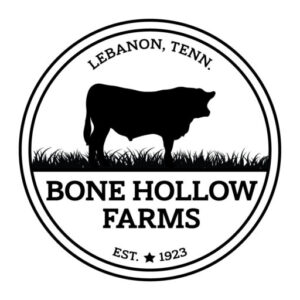Bone Hollow Farms has a rich history rooted in agricultural and community. Among the pioneers in raising Hereford Cattle, it was also renowned for its tobacco cultivation, which served as the primary cash crop. The farm maintained a diverse array of livestock, including sheep, which were raised for both meat and wool. Situated in Wilson County, Tennessee, Bone Hollow Farms contributed to the local economy, particularly through the sale of lambs and wool.
In addition to livestock, the farm boasted fruitful orchards that yielded apples, packed in barrels and transported to Nashville for storage and distribution. Chickens were also a staple, providing both food and eggs, and were also sold for purchasing groceries not produced on the farm. The farm’s significance extended beyond agriculture; during World War II, it became a training ground for army personnel, offering shelter and sustenance to many soldiers. Despite facing challenges such as the division caused by the construction of US 70 East in the early 1930s, Bone Hollow Farms persevered, leaving a lasting legacy of agricultural excellence and community support.

